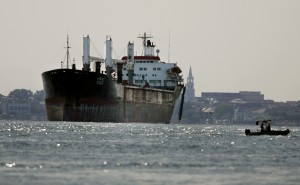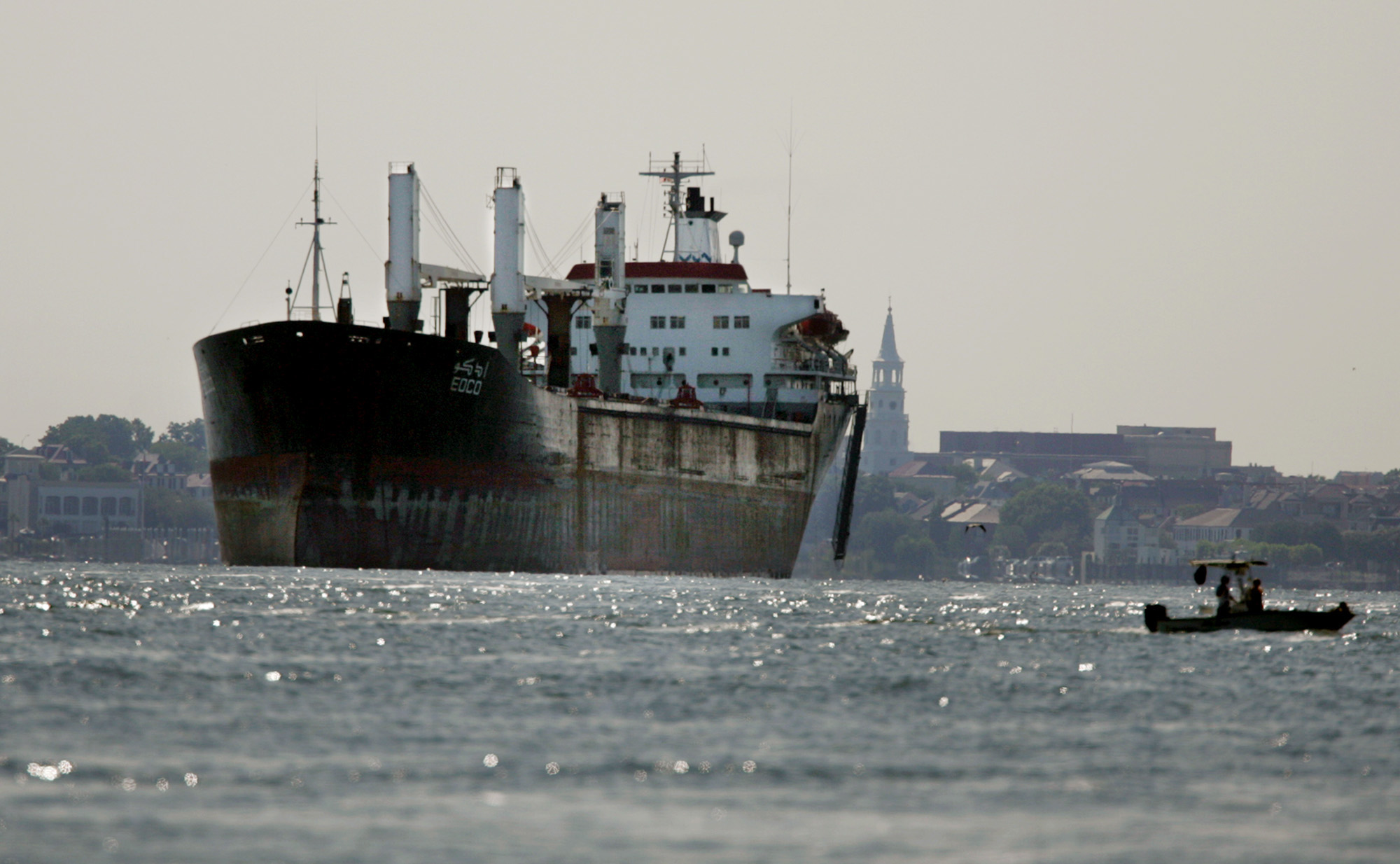
(AFP Photo)
By: Eslam Atris
The International Centre for Settlement of Investment Disputes (ICSID), an organisation located within the World Bank, recently accepted charges brought by the Damietta International Port Company (DIPCO) against the Egyptian government, specifically its Public Port Authority and the Ministry of Transportation. The charges were made due to the government’s imposition of fines on the company without prior warning. Company officials say that such a practice violates the terms of the contract reached between the two parties.
Members of the Board of Directors of Egypt’s Public Ports Authority stated that DIPCO had resorted to seeking international arbitration to settle the dispute, despite the fact that the contract reached between the two countries stipulates that all disputes be brought before Egyptian courts. Government officials also claimed that DIPCO did not provide any of the above-mentioned institutions with prior warning regarding its desire to seek arbitration on such disputes.
The country’s Public Ports Authority requested on 11 November 2012, through an official memorandum sent to DIPCO, that the two sides terminate their contracts regarding the establishment of shipment container stations in the Port of Damietta, in addition to plans to deepen the port by 17 metres.
A source, who chose to have his identity concealed, stated that Walid Abdel Ghafar, advisor to Egypt’s Transportation Minister for Maritime Trade, was currently leading negotiations between the Port Authority and DIPCO in order to end the protracted disputes currently underway between the two parties. The Port Authority, he said, had so far come up with two suggestions to help end the dispute, including decreasing the ownership priority time span for the company from 40 to 35 years, in addition to convincing the Authority to agree to bear part of the cost of fines imposed upon DIPCO.
DIPCO reportedly rejected these suggestions, and instead suggested that the Authority further dredge the Damietta waterway and increase funding for dredging from $30m to $65m to compensate for the recent devaluation of the Egyptian pound. The first stage of implementation of such a project could take anywhere from three to six years.
A member of the Board of Directors within the Port Authority stated that they had rejected DIPCO’s demands, and would choose to maintain the clauses in the original contract between the two parties. They further stipulated that DIPCO must pay the full $72m in fines imposed upon them.
Ahmed Al-Sadiq, advisor to DIPCO, stated that the $72m in fees imposed by Damietta’s Port Authority had been presented as a lump sum. He further stated that the government had the right to repeal any agreement reached between itself and foreign investors regardless of their nationality, adding on the other hand that investors had the right to resort to international arbitration in disagreements with the government. He added that such a move was not in the country’s best interests and would not have a positive effect on the reputation of Egyptian investors.




